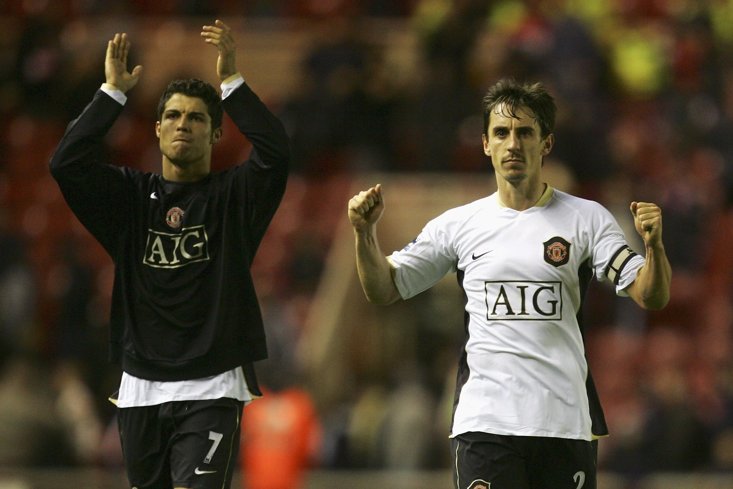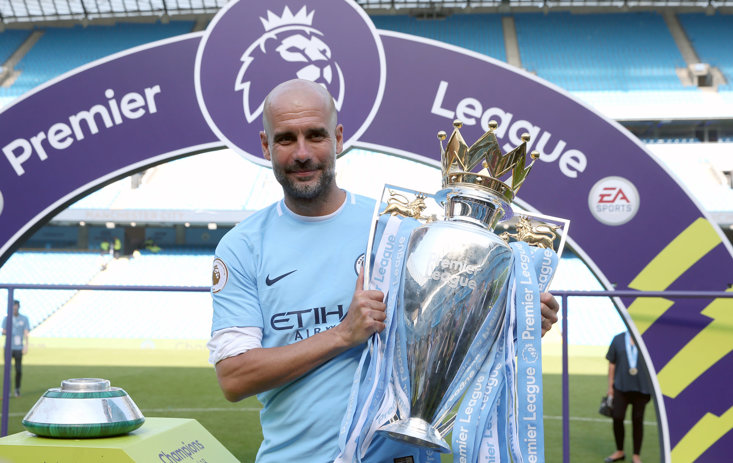In this five-part series, The Sportsman will be exploring one of football's biggest questions. Just why do we love our football clubs? What makes this entity, made up of fleeting players, ever-changing crests and variable fan bases so special to us individually? In the first part, we focus on those fans who make a club what it is.
Football is all about a journey. When you think of a football supporter, you think of somebody making the same walk to the stadium every other weekend. With a scarf adorned on their shoulders, they make their way past the burger van, buy a programme and make their way through the turnstile.
‘Buzz - click, click,click’
The same sounds. The same walk to their seat, the same familiar faces around them. They might not know anything deep or granular about the people around them, but every fortnight they greet them with the same smile and say a couple of words about the line-up. It's the ultimate tradition. But aside from routine, what connects football fans to their clubs?
Family so often plays a part. You support your dad’s team, or your dad’s dad’s team and, through sheer influence, find the club deep-rooted into your veins. Once you’ve got the bug, it becomes an obsession. The chants from the terraces make the hairs on the back of your neck stand up. The emotions drain you for 90 minutes on a matchday. For those match-going fans, it is all of the above.
“Manchester United is in my family's blood and always will be - as they say from cradle to grave, in my eyes,” Darren Webb, a season ticket holder at Old Trafford tells us. “Manchester United means everything to me, it’s my life and without them I’m lost.
READ MORE:
- Harry Maguire: England's most confounding footballer
- Jamie Carragher on England regret
- Why Trent shouldn't go to Qatar
“I’ve supported them from the day I was born, due to my mother being a Red who went to most games growing up and hiked all the way to Wembley to the 1968 European Cup final. When we lose I’m a bad person to be around, my family just leave me be for at least a day.”
But football, especially the Premier League, has become a global game in which fans can now live thousands of miles away from the city and dedicate their life to a club without ever going to a match. In 2019, Kantar did a study that estimated that United had a worldwide fan base of 1.1 billion and the Red Devils are now the world’s most popular club.
But how can someone on the other side of the planet possibly relate to the experience that Darren has, going to the games every week?
“Social media acts as a great platform to help global fans engage all over the world,” a fan from India behind the popular Twitter account, The United Link, says. “It's the emotion which the global fans share which makes us so attached to the club. Even though we are not from Manchester, the match-going fans represent us when they back the players on the pitch.
“I started supporting Manchester United consistently after watching the 2006-07 season. They won the league that year and, as I grew older, the feeling of supporting this club only grew stronger with time. Win or lose, Manchester United will always be my club.”

The global fanbase is something that Manucian Darren completely understands. “Listen, I’m privileged to live four miles from Old Trafford but it doesn't matter to me if you live in India, Australia or wherever - if you are a Red, you will do for me.”
Two fans. Two continents. The same emotions. Fans across Asia may not actually attend Old Trafford on a matchday, but they will wake up at ridiculous hours in the night to watch their side play. If a Mancunian lives 15 minutes away from the stadium, who in that scenario is making the bigger sacrifice?
It’s not a competition, but the commitments of both should be applauded. They both support United, but do so in a different way. This global fanbase also brings into question how a club can connect with its local area. Smaller clubs have to do all they can to bring revenue in through the gates, but for a global giant it doesn’t really matter.
Liverpool and Newcastle United fans, amongst several others, should be incredibly proud of their clubs' links with local food banks, and what a club stands for in some areas has to represent a supporter’s views. Liverpool is a good example, in a Labour city, of a left-wing club that doesn’t truly associate itself with England. Local fans can relate to their manager Jurgen Klopp, and therefore what they see on the pitch.
But what about two separate generations of fans, who have seen wildly different things from the same football club. Manchester City are the prime example of this. A club that had variable success through its history and played regularly in the second tier has now transformed and become the most dominant club in the country. Surely older fans simply cannot relate to the club they see before them today?
If you were brought up on relegation scraps and play-off finals, the mega-rich club City have become doesn’t really speak to you anymore, even if they deserve credit for the investment they have made into the Eastlands area of Manchester. For young fans it is all they have known, but they might start to support Pep Guardiola’s side because of relentless success and big names rather than because their mum or dad has followed them for their whole life. One thing is for sure, the title wins for the older City fan will mean a hell of a lot more than they do to the younger fan. They’ve done the hard yards to reap the rewards of this success.

Wimbledon fans had this very real internal debate in 2002 when the club upped sticks and moved to Milton Keynes. Everything changed. The fans, the stadium, the regular season-ticket holders, the connection to that corner of the capital. It was all too much for the majority of their supporters, and so they decided to start a phoenix club, who have now risen through the divisions and into the EFL.
But MK Dons, in their own right, have now been around long enough to garner their own fanbase. If you are a teenager from the city, why wouldn’t you go and support your local team? Their move may have sickened the wider footballing community but, like it or lump it, they are also now an established EFL team, seen as a separate entity to Wimbledon, the Crazy Gang and that famous FA Cup triumph in 1988.
To finish the first part of this series on a personal note, as I’ve got older, I realise that my football club has taken on far more importance in terms of my connection with my dad. We don’t see eye to eye on politics, the royal family or other major issues, but we can always talk about football. He took me to my first football match and started my utter obsession with sport in general. I’m not sure we would speak much without our weekly moans, and I know for a fact that this is a feeling shared by thousands of other sons and daughters up and down the country.
Our football clubs bond us together in a way that nothing else can. Whether you are from Manchester or Mumbai you can support your team in your own unique way. If you’re lucky enough to go to games on a regular basis, the chants and the atmosphere can speak to you in a divine manner. But the connections we make with those closest to us over something so omnipresent and reassuring, that is what being a football fan is all about.